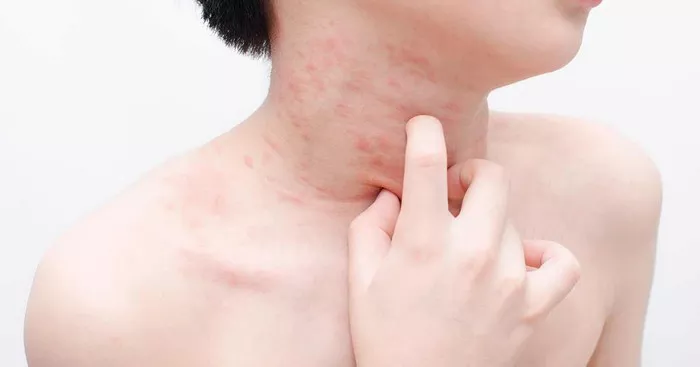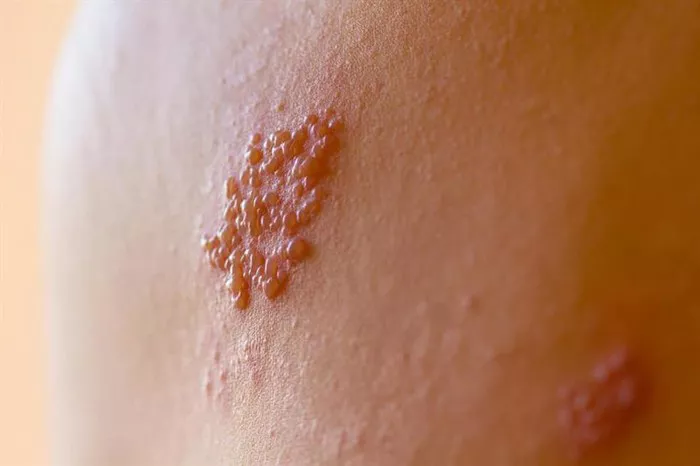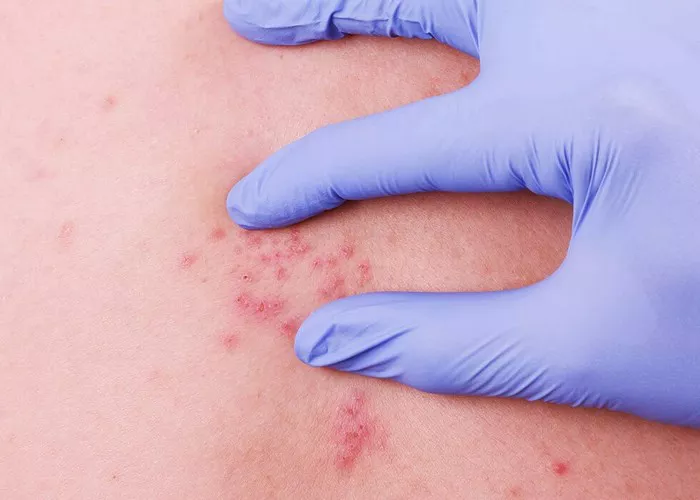Urticaria, commonly known as hives, is a condition characterized by the sudden onset of itchy, red welts on the skin. While the exact triggers of urticaria can vary widely among individuals, many sufferers report a noticeable worsening of symptoms during the night. Understanding why urticaria is worse at night can help individuals manage their condition more effectively. This article delves into the potential causes of nocturnal urticaria exacerbation, exploring physiological, environmental, and lifestyle factors that may contribute to this phenomenon.
Circadian Rhythms and Immune Function
The human body operates on a circadian rhythm, a natural 24-hour cycle that influences various physiological processes, including the immune system. Research suggests that the circadian rhythm plays a critical role in the regulation of immune responses, which may explain why urticaria symptoms worsen at night.
Hormonal Fluctuations
Cortisol, a hormone with potent anti-inflammatory effects, follows a circadian pattern, peaking in the early morning and reaching its lowest levels at night. This reduction in cortisol levels during the night can lead to increased inflammation and heightened sensitivity to allergens or irritants, potentially exacerbating urticaria symptoms.
Histamine Release
Histamine is a key mediator in the development of urticaria, causing the dilation of blood vessels and the subsequent formation of hives. The release of histamine also follows a circadian rhythm, with levels typically increasing at night. This nocturnal rise in histamine can contribute to the worsening of urticaria symptoms during the evening and nighttime hours.
Environmental Factors
The environment in which one sleeps can significantly impact urticaria symptoms. Various environmental factors present in the bedroom can exacerbate hives, making them more troublesome at night.
Allergens
Common indoor allergens, such as dust mites, pet dander, and mold, can accumulate in the bedroom, particularly in bedding and carpets. Exposure to these allergens while sleeping can trigger or worsen urticaria symptoms. For individuals with allergic urticaria, nighttime exposure to allergens is a frequent cause of nocturnal flare-ups.
Temperature and Humidity
Both temperature and humidity levels in the bedroom can influence urticaria symptoms. High temperatures can cause sweating, which may irritate the skin and lead to the formation of hives. Conversely, low temperatures and dry air can cause skin dryness and irritation, potentially triggering urticaria. Maintaining a comfortable and stable temperature and humidity level in the bedroom can help mitigate these effects.
Bedding Materials
Certain materials used in mattresses, pillows, and bedding can irritate the skin or harbor allergens, exacerbating urticaria symptoms. Synthetic fabrics and certain types of foam can trap heat and moisture, leading to skin irritation. Opting for hypoallergenic, breathable, and natural materials in bedding can help reduce the likelihood of nocturnal urticaria flare-ups.
Lifestyle Factors
Lifestyle choices and habits can also play a role in the exacerbation of urticaria symptoms at night. Understanding and addressing these factors can help individuals manage their condition more effectively.
Diet and Eating Habits
The timing and composition of meals can influence urticaria symptoms. Certain foods and beverages, such as those high in histamines, alcohol, and spicy foods, can trigger or worsen hives. Eating these foods close to bedtime can increase the likelihood of nocturnal urticaria flare-ups. Maintaining a balanced diet and avoiding known trigger foods, particularly in the evening, can help manage symptoms.
Stress and Anxiety
Stress and anxiety are known triggers for urticaria, and these factors can be particularly pronounced at night when individuals have more time to dwell on worries and concerns. The release of stress hormones can provoke an immune response, leading to the formation of hives. Practicing relaxation techniques, such as meditation or deep breathing exercises, before bed can help reduce stress and minimize its impact on urticaria symptoms.
Sleep Patterns
Poor sleep quality and irregular sleep patterns can exacerbate urticaria symptoms. Lack of sleep can weaken the immune system, making the body more susceptible to allergic reactions and inflammation. Establishing a regular sleep routine and ensuring adequate rest can help improve overall health and reduce the severity of nocturnal urticaria.
Underlying Health Conditions
Certain underlying health conditions can contribute to the worsening of urticaria symptoms at night. Identifying and addressing these conditions can be crucial for effective management of the condition.
SEE ALSO: Is There a Shot for Hives?
Chronic Urticaria
Chronic urticaria, defined as hives lasting for more than six weeks, can be influenced by various internal and external factors. Individuals with chronic urticaria may experience more severe symptoms at night due to the cumulative effect of these factors. Managing chronic urticaria often requires a comprehensive approach, including medication, lifestyle modifications, and addressing underlying health conditions.
Autoimmune Disorders
Autoimmune disorders, in which the body’s immune system mistakenly attacks its own tissues, can cause or worsen urticaria symptoms. Conditions such as thyroid disease, lupus, and rheumatoid arthritis have been linked to chronic urticaria. Nighttime exacerbation of symptoms in individuals with autoimmune disorders may be due to the interplay between the immune system and circadian rhythms. Treatment for these underlying conditions can help improve urticaria symptoms.
Infections and Illnesses
Infections and other illnesses can trigger or worsen urticaria. Viral infections, in particular, can lead to an increase in histamine release, resulting in hives. The body’s immune response to infections often follows a circadian pattern, which may explain the nighttime worsening of symptoms. Addressing and treating underlying infections or illnesses can help alleviate urticaria symptoms.
Medical Treatments and Interventions
For individuals experiencing severe nocturnal urticaria, medical treatments and interventions may be necessary. Consulting with a healthcare provider can help determine the most appropriate course of action.
Antihistamines
Antihistamines are commonly used to treat urticaria by blocking the effects of histamine. Taking an antihistamine before bed can help reduce the severity of nocturnal symptoms. There are both sedating and non-sedating antihistamines available, and a healthcare provider can help determine which type is most suitable for nighttime use.
Corticosteroids
For severe cases of urticaria, corticosteroids may be prescribed to reduce inflammation and suppress the immune response. These medications can be particularly effective in managing acute flare-ups but are typically used for short periods due to potential side effects.
Immunomodulatory Treatments
In cases of chronic urticaria that do not respond to conventional treatments, immunomodulatory therapies, such as omalizumab (an anti-IgE antibody), may be considered. These treatments work by targeting specific components of the immune system to reduce the frequency and severity of urticaria symptoms.
Practical Tips for Managing Nocturnal Urticaria
In addition to medical treatments, several practical strategies can help manage urticaria symptoms and improve sleep quality.
Maintain a Clean Sleeping Environment
Regularly cleaning bedding, vacuuming carpets, and reducing clutter in the bedroom can help minimize exposure to allergens. Using hypoallergenic pillowcases and mattress covers can also reduce allergen accumulation.
Optimize Bedroom Conditions
Keeping the bedroom cool, well-ventilated, and at a comfortable humidity level can help prevent skin irritation. Using a humidifier or air purifier can improve air quality and reduce allergens.
Implement a Relaxing Bedtime Routine
Establishing a calming pre-sleep routine can help reduce stress and promote better sleep. Activities such as reading, taking a warm bath, or practicing mindfulness can create a relaxing environment conducive to sleep.
Monitor and Avoid Triggers
Keeping a symptom diary to track potential triggers can help identify and avoid factors that worsen urticaria. This may include certain foods, activities, or environmental conditions. Making lifestyle adjustments based on these observations can lead to better symptom management.
Conclusion
The worsening of urticaria symptoms at night can be attributed to a complex interplay of physiological, environmental, and lifestyle factors. Understanding the role of circadian rhythms, environmental allergens, dietary choices, stress, and underlying health conditions is crucial for effective management of nocturnal urticaria. By implementing practical strategies and seeking appropriate medical treatments, individuals can reduce the impact of urticaria on their sleep and overall quality of life. As always, consulting with a healthcare provider is essential for personalized advice and treatment options tailored to individual needs.
Related Topics:



























